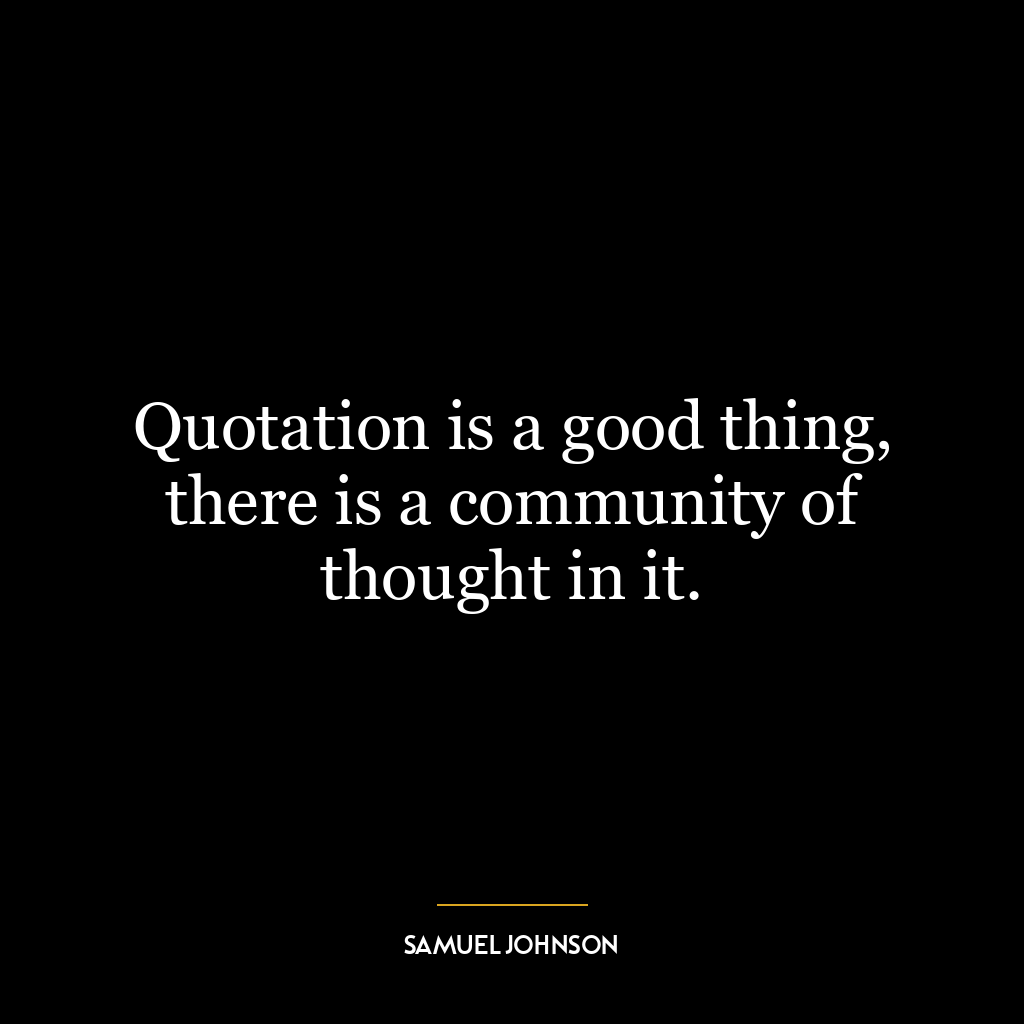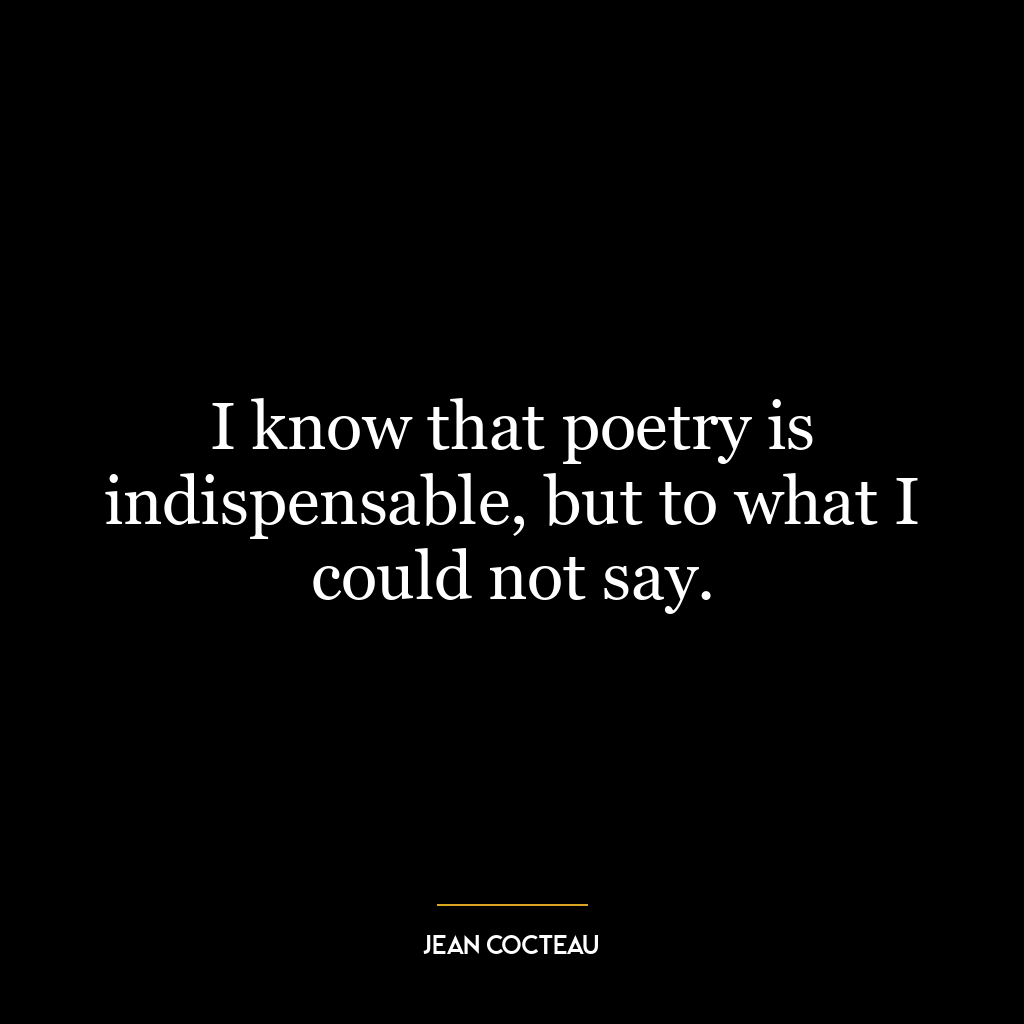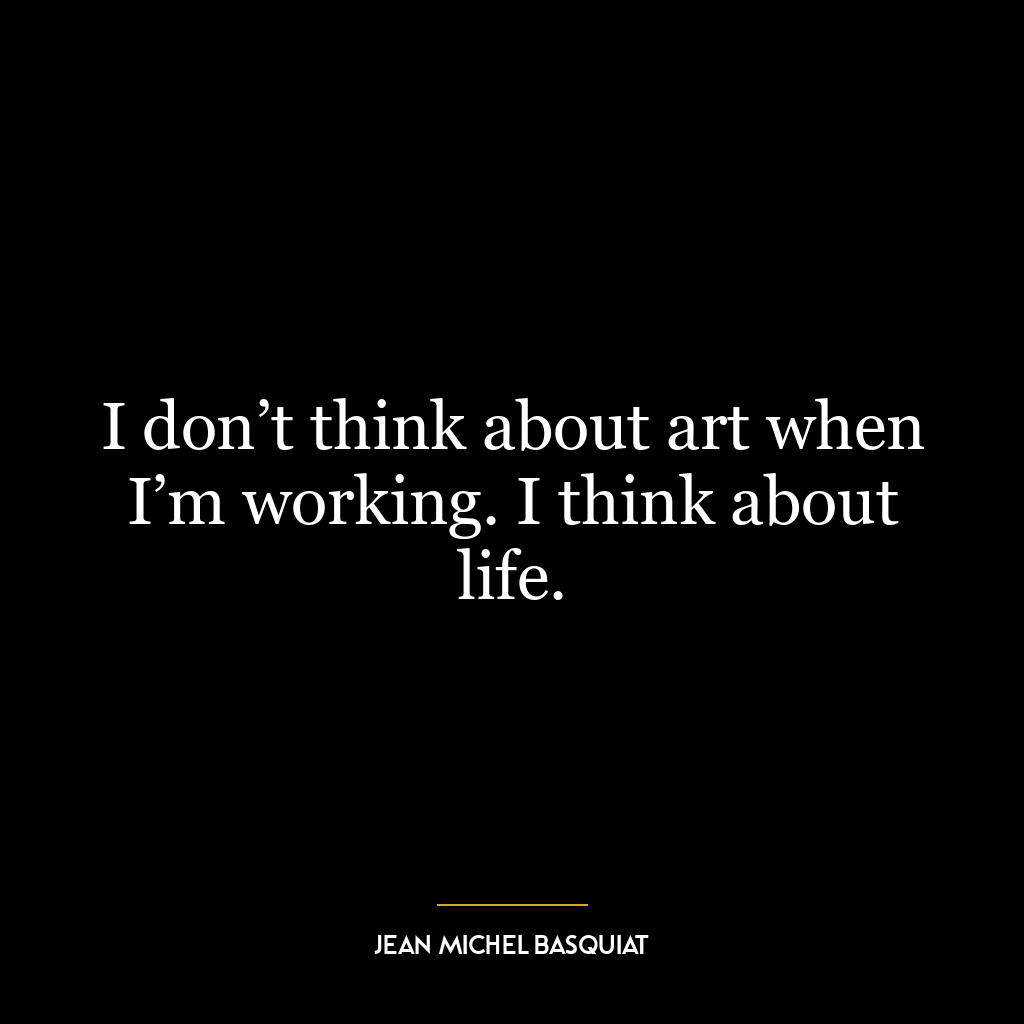The quote, “Quotation is a good thing, there is a community of thought in it,” suggests that the act of quoting isn’t just about borrowing someone else’s words. Instead, it creates a bond or connection between people through shared ideas and perspectives. It implies that when we use quotations, we’re not just parroting what someone else has said; we’re aligning ourselves with their thoughts and ideas.
In essence, by quoting someone else’s words, we are participating in an intellectual exchange or dialog across time and space. We join a collective consciousness where thoughts are shared and exchanged freely. This can foster understanding among different individuals as they find common ground in these shared ideas.
In today’s world where information travels at breakneck speed across various platforms like social media, blogs, news outlets etc., this concept is more relevant than ever before. Quotations from notable figures spread rapidly online and can often spark conversations among people from diverse backgrounds who might otherwise never interact with each other.
For instance, consider how often quotes from famous speeches or literary works are used to inspire others or to make a point on social media platforms like Twitter or Instagram. When these quotes resonate with us personally – when they express something we’ve felt but haven’t been able to articulate – we share them with our own followers thereby contributing to this ‘community of thought.’
In terms of personal development too this idea holds significance. Quotations can serve as powerful reminders of our values and aspirations; they can motivate us and provide comfort during challenging times; they help us feel connected to others who have faced similar struggles.
To sum up: the act of quotation isn’t merely about repeating words—it’s an exercise in empathy that helps build bridges between minds across the barriers of time, culture and individual experience.















